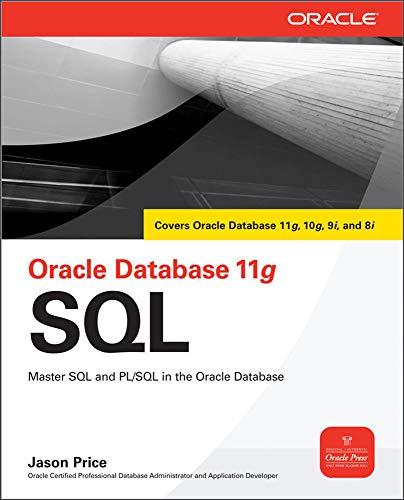Question
Although you always wanted to be an artist, you ended up being an expert on databases because you love to cook data and you somehow
Although you always wanted to be an artist, you ended up being an expert
on databases because you love to cook data and you somehow confused
database with data baste. Your old love is still there, however, so you set up
a database company, ArtBase that builds a product for art galleries. The core of
this product is a database with a schema that captures all the information that
galleries need to maintain. Galleries keep information about artists, their names
(which are unique), birthplaces, age, and style of art. For each piece of artwork,
the artist, the year it was made, its unique title, its type of art (e.g., painting,
lithograph, sculpture, photograph), and its price must be stored. Pieces of
artwork are also classified into groups of various kinds, for example, portraits,
still-lifes, works by Picasso, or works of the 19th century; a given piece may
belong to more than one group. Each group is identified by a name (like
those just given) that describes the group. Finally, galleries keep information
about customers. For each customer, galleries keep that persons unique name,
address, total amount of dollars spent in gallery (very important!), and the artists
and groups of art that the customer tends to like.
The ER model your DB engineer designed was lost, and he has resigned. So
you need to step in:
Draw an ER diagram for this database. Make sure to indicate primary
keys, cardinality constraints, weak entities (if any) and participation
constraints. List any assumptions you make in the process.
Translate the ER diagram into relational database tables (i.e. give the
SQL DDL statements). Make sure that the translation captures key
constraints (primary keys and foreign keys if applicable) and participation
constraints in the ER diagram. Identify constraints, if any, that you are not
able to capture.
Step by Step Solution
There are 3 Steps involved in it
Step: 1

Get Instant Access to Expert-Tailored Solutions
See step-by-step solutions with expert insights and AI powered tools for academic success
Step: 2

Step: 3

Ace Your Homework with AI
Get the answers you need in no time with our AI-driven, step-by-step assistance
Get Started


